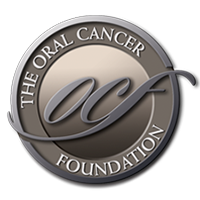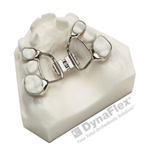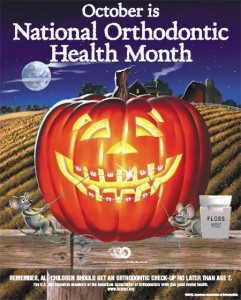Thumb/finger sucking habits, particularly if they continue once the permanent teeth erupt, can cause significant orthodontic problems. The habit generally must persist 6 hours a day in order to have an impact on the dentition and skeletal structure. If not stopped, habits such as thumb sucking can lead to a significant open bite in the front of the mouth, a posterior (back) crossbite and an overjet ("overbite") that may lead to the need for extractions and/or orthognathic surgery. The American Association of Orthodontists recommends that children are seen by an orthodontist no later than age seven because there are certain malocclusions and habits that may benefit tremendously from early diagnosis and treatment.
There are several reasons for the changes in the bite due to a thumb habit. Finger/thumb sucking is an active habit and causes intrusive forces on the incisors, while at the same time leading to an altered posture of the jaw that allows posterior teeth to erupt. The active sucking habit also causes a width change in the maxilla and leads to a narrow and V-shaped maxillary arch with a crossbite sometimes occurring.
If your little one has a habit, don’t hesitate to call us and speak to Dr. Hughes. On your own, you can try many tried and true home remedies to stop a thumb habit:
Use a reward system. Pediatricians sometimes recommend a game-playing, reward-based system for helping kids stop sucking their thumbs. Try buying a calendar and placing it on the refrigerator. For each day you don't see the child sucking his or her thumb, you can put a smiley-face sticker on the day. At the end of a set period of time, say a month, you can offer a modest reward, such as a toy or dinner at the child's favorite restaurant.
Try ordeal therapy. How about trying a little reverse psychology? Point out to a thumb-sucking child that he or she isn't being fair to the other fingers -- so why not suck them, too? Give the child a timer and explain that it's important to suck all fingers for the same duration. Often, the child will grow so tired of the process that they quit thumb sucking altogether. The only problem with this type of approach is that kids are likely to see through it when it comes from a parent (they know the parent really wants them to stop altogether). If you suspect that this will be the case, a pediatrician or close friend of the family may be able to help.
Offer the child the option of thumb sucking in private. Consider your efforts a success if the child quits thumb sucking in front of you or in public. Don't worry, the relatively brief time a child can spend sucking on a thumb in private won't be long enough to cause other problems.
Never use negative reinforcement. If the child has a slip, it may be destructive to use a negative reward, such as placing a sad-faced sticker on a calendar date. Failure has a nasty way of perpetuating itself.
Try "reminder fluid." Although some doctors see it as cruel, others recommend the use of bad-tasting fluids that are put on the thumb to keep the child from putting it in his or her mouth. However, don't use this method as a punishment. Rather, stress the positive by telling the child that the fluid will help by serving as a reminder of his or her goal. As an alternative, parents can place a glove or mitten on the child's hand as a reminder to keep the thumb out of the mouth.
Start with the easy stuff, then move on. First, you might suggest that the child stop thumb sucking while in public, or some other time when he or she is most likely to comply. Then you can move on to the times when the habit is most ingrained, such as bedtime. You may want to double rewards if the child doesn't suck his or her thumb during the more challenging times.
Don't yell. Although you may feel frustrated when your child slides back into his or her thumb-sucking behavior, don't punish or yell at the child. You will only make him or her nervous and upset, which will probably lead to more thumb sucking.
Wait it out. You know what happens to most kids who suck their thumbs at four, five, or even six years of age? They stop. Parents often notice that children engage in the habit a bit less with each passing year, or perhaps only suck their thumbs at certain times, such as when they're tired or watching television. Pediatricians say that many children give up thumb sucking altogether by age six or seven because of peer pressure -- ribbing from friends and schoolmates shames them into stopping.
The good news is that even if the above suggestions do not work, the early treatment of a habit by Dr. Hughes is a fairly simple and pain free one. It involves the fabrication of a habit appliance once it has been determined that the patient is unable to stop the habit themselves.
Dr. Hughes is happy to share her knowledge and advice should any of you parents have a question or concern so don't hesitate to call us.










